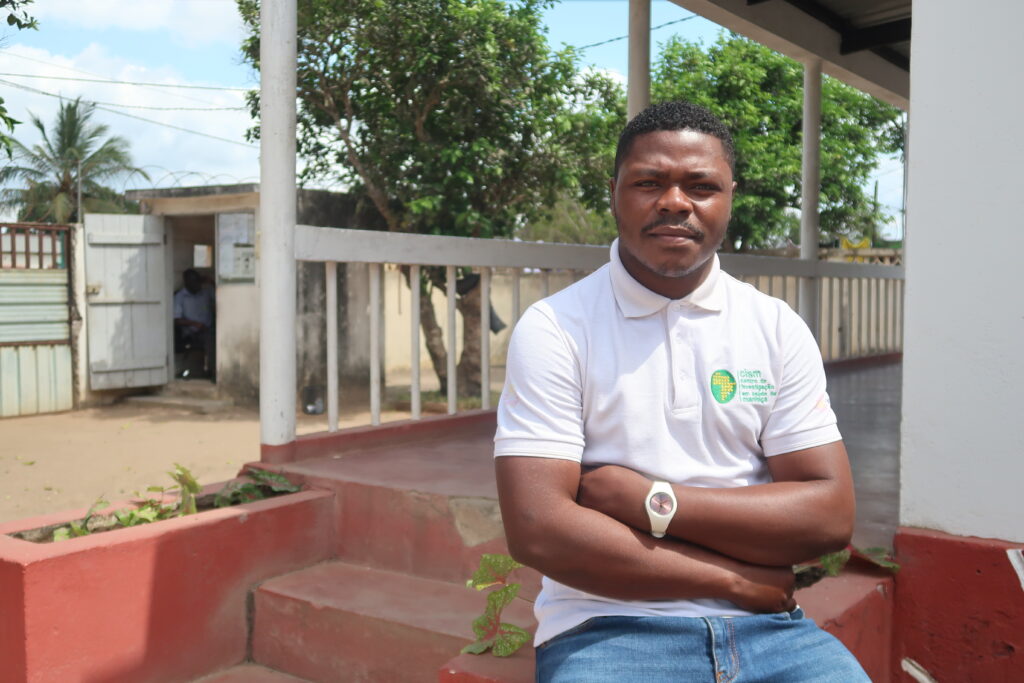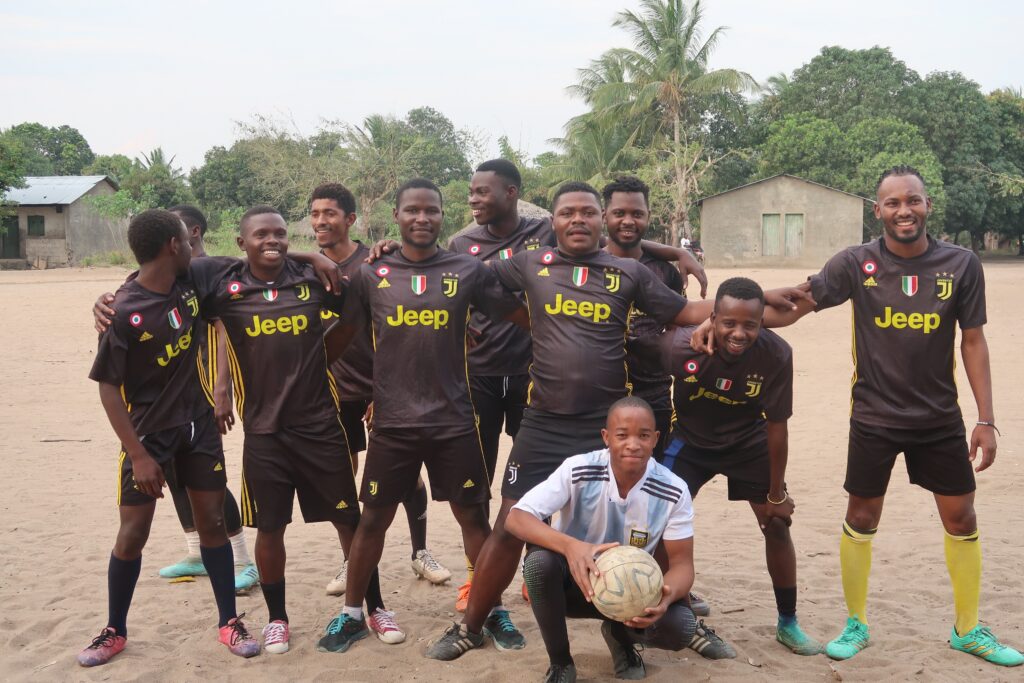
Interview with Paulo Jorge, supervisor of fieldworkers in Mungane village, Mozambique
As a child, what did you want to be when you grew up? Were you already attracted to the field of health?
Growing up, I wanted to be a veterinarian. My father was an animal breeder and I grew up in his farm, helping him raise chicken, ducks, goats, and dogs.
I had just finished a course on veterinary sciences when I saw an announcement in my village that the BOHEMIA project was hiring fieldworkers from the community. Seeing this opportunity to work on a One Health project, I applied and soon joined the team.
BOHEMIA enabled me to play a role in helping my community fight back malaria, a disease that has claimed far too many lives of our people.
BOHEMIA enabled me to play a role in helping my community fight back malaria, a disease that has claimed far too many lives of our people.
What is your role in BOHEMIA? Describe a day at work.
I work as a field supervisor in the BOHEMIA project. Initially, I had joined the team as a fieldworker, but went on to be promoted as a supervisor after some months of training.
In this role, I work with a team of eight fieldworkers to ensure good quality of work. I also act as a bridge between the field and the administration. During the early days of the project, I guided my team to do a variety of tasks including data collection, communication, the process of requesting for consent from the trial participants, data submission and administration of the drug.
Considering that BOHEMIA is such a large trial covering huge remote areas, a lot of my time is also dedicated to solving logistical issues like the availability of all trial materials, transport and communication tools.
What were some of the major difficulties that you faced during this project? How did you overcome them?
A challenge that I will never forget is when Cyclone Gombe hit Mopeia district. The rivers in remote villages like Postocampo and Mungane started overflowing and flooded several hamlets, displacing the community. But rain or floods, the trial design of the MDA meant that we had to continue distributing the drug to all the participants on time.
The roads were so flooded that we had to ditch our vehicles and opt for walking long distances or navigating the area with boats. At times, we rowed our boats for nine hours to ensure that the medicine reached the trial participants.
At times, we rowed our boats for nine hours to ensure that the medicine reached the trial participants.
However, the greatest challenge in implementing this malaria trial was malaria itself. Working long hours in the field during the rainy season meant that our fieldworkers were constantly exposed to the malaria-spreading mosquitoes and often fell sick.
Tell us about the impact of malaria in your village, and your hopes from a project like BOHEMIA.
I come from Mungane, a remote village in the Mopeia district of Mozambique, where malaria is one of the top killers of children under five. A huge river, large swamps, and the irrigated fields make this region very hospitable to mosquitoes.
Having grown up with the constant threat of malaria, I always dreamt of a malaria-free future for the children in my village. So when we heard about the BOHEMIA project, we were quite hopeful. Considering the daily toll of malaria in our lives, most of my community members were keen to support the project in myriad ways: be it by participating in the trial, joining the project team, or even sharing a cooked meal with the hardworking fieldworkers.
You are part of FC BOHEMIA, the project’s football team. How have these football matches helped your team in mobilization activities for the trial?
The football games organized by the community engagement team have been a gamechanger. They give us a platform to disseminate information about the project to all members of the community at the same time.
In my village, we have made huge progress in mobilizing people to participate in the trial by engaging with them through football games. Even the local leaders love this initiative and want to continue using football for community building activities in the future.
As a passionate football player, these football matches have also brought me closer to my colleagues in the BOHEMIA team. Afterall, none of us ever imagined that football would become an essential part of this malaria project!







